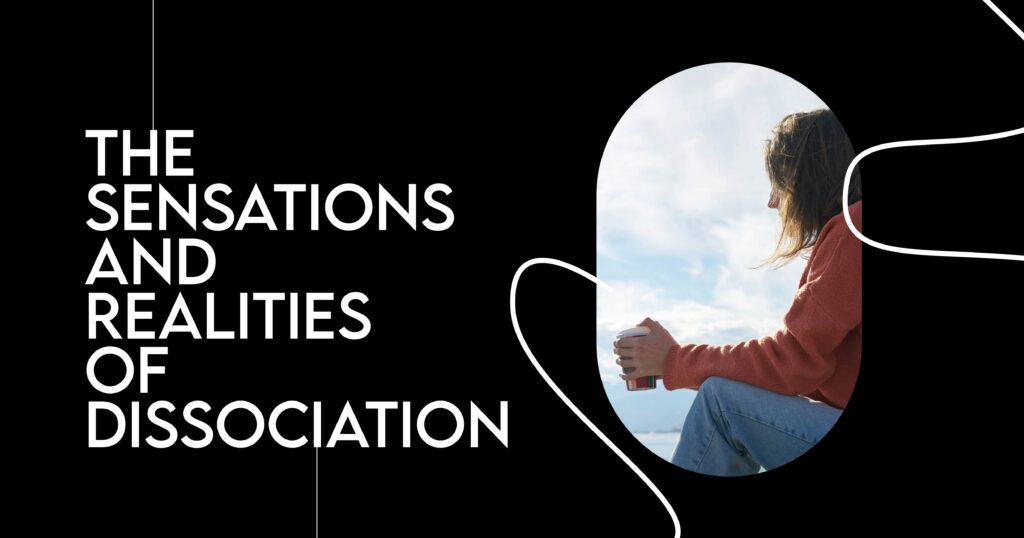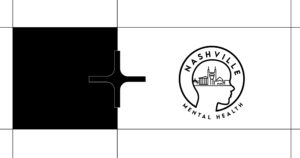Dissociation is a complicated and psychological experience. Usually, it leaves people feeling disconnected from themself or the world. What does dissociation feel like?
There’s no way to describe it. Dissociation can feel like different things, from numbness to a dreamlike experience.
In this article, we’ll explore some common sensations. We’ll also dive into the reality of dissociation with an expert perspective. This way, you can better understand what you might be experiencing, or what it may be like to experience dissociation, and how it can affect everyday living.
Dissociation Common Symptoms and Experiences
Dissociation can cause a variety of symptoms and sensations that affect your sense of self and surroundings. They include:
| Symptom/Experience | Description |
| Detachment | Feeling disconnected from your surroundings or from yourself |
| Numbness | A lack of physical or emotional sensation, feeling emotionally blunted or “checked out” |
| Dreamlike State | Perceiving the world as surreal |
| Out-of-body Experience | Feeling as if you are observing yourself from outside your body |
| Altered Perception | Experiencing changes in how you sense the environment, often feeling disconnected |
| Emotional Blunting | Reduced ability to feel or express emotions |
All of these sensations are common experiences of dissociation. They may feel confusing – however, knowing them can help you understand your own experience better.
Nashville Mental Health
Types of Dissociation
Depersonalization
Depersonalization is the experience of being distant or disconnected from your thoughts or your body. You may feel that you are sometimes watching your body in action, while you stand to the side, watching a movie, or watching a video of yourself.
For someone with depersonalization, it can make their experience feel distant and unreal, and can create discomfort and confusion with who they are.
Derealization
Derealization includes not only the strangeness of the outside world but also a dreamlike and foggy perception of the world outside of you. You can find yourself easily perceiving that things seem not real, or that the people you see seem distant from you in a way that can change your perception of the outside world and make it feel surreal and unsettling.

Dissociative Amnesia
Dissociative amnesia is a condition where individuals cannot retrieve significant information about themselves, typically associated with trauma or stress. Amnesia involves more than simply forgetting – it can often serve a function of protecting the individual from an experience they cannot tolerate.
Physical Sensations Associated With Dissociation
Dissociation may also include particular bodily sensations that feel strange or uncomfortable. They include:
| Physical Sensation | Description |
| Lightheadedness | Feeling dizzy or faint, as though you might lose balance |
| Numbness | Reduced or altered sensation in parts of the body, often feeling “asleep” or detached |
| Tingling Sensation | A prickly or “pins and needles” feeling, usually in the extremities |
| Muscle Weakness | Feeling physically weak or heavy, sometimes as if your body is less responsive |
| Altered Sensory Perception | Changes in how you experience sounds, sights, or touch, often feeling muted or distant |
| Reduced Physical Awareness | Feeling disconnected from your body or sensing it in an unusual way |
These bodily sensations are commonly associated with dissociation and may also contribute to the feeling of disconnection or “un-grounded.”
Emotional Impact of Dissociation
Emotional Blunting
Emotional blunting is when you feel less or no emotional response to experiences you would generally have some type of emotional response to. You may feel dazed, detached, or completely cut off from your emotions.
Disconnection from Feelings
Dissociation can affect your relationship with your emotions and how you might be feeling. It can severely limit your ability to process emotions and heal as a person, leaving you in a state of dissociation and a state of not being in alignment with your feelings.
Increased Anxiety or Confusion
The experience of dissociation can bring social anxiety, especially when you are not sure why. If confusion about your sense of self and your reality is heightened, you may become quite stressed, and it may feel like the symptoms are too much.
Isolation and Loneliness
Since dissociation disconnects you from your experiences and from others, you will feel more and more alone and isolated. You may have difficulty connecting with friends or family, which will change your relationships and increase feelings of emotional detachment.
Nashville Mental Health
Coping Mechanisms and Strategies for Dissociation
There are practical methods that help cope and lessen the impact of dissociation when it is happening. Using helpful strategies or effective coping strategies can add to the sense of control and sense of connection in a day-to-day context.
Grounding Techniques
Grounding techniques bring you back to your environment by attending to what is around you. Examples include the feeling of an object, noticing your breath, or naming some things you see. By doing some of these things, you are able to ground yourself back again in the present moment and reset how you are experiencing the feelings of dissociation.
Mindfulness Practices
Mindfulness is being aware of your experience now, observing your thoughts and sensations only from a perspective of non-judgment. Mindfulness practices can help create an awareness of your present experience and may help ease your way gently away from a dissociative experience and decrease your dissociation or altered perceptions.
Seeking Social Support
Being with trusted friends, family, or a support group can provide you with comfort and reassurance. Talking about your own experiences may also relieve your feelings of isolation and will remind you that you are not alone in dissociation.
Professional Therapy
You will have individualized support and treatment with a mental health care provider/specialist. Treatment approaches such as PTSD therapy and trauma-specific therapy will address root causes and also help you learn healthier ways to cope with your dissociation.
Seek Professional Help at Nashville Mental Health
If you lead a life impacted by dissociation, talking to a professional can change everything for you.
Nashville Mental Health provides education and caring, compassionate treatment tailored to your individual situation. We offer evidence-based treatments and care to support you on your recovery and healing journey.
Reach out to Nashville Mental Health and get the support you deserve.

FAQs
How does dissociation contribute to feelings of detachment and numbness from reality?
Dissociation happens when your brain splits feelings from your environment, often as a protective measure from trauma or strong emotions. If you dissociate, you will likely feel emotionally numb to the world, feeling as though you are on autopilot.
What are the differences between the dreamlike and out-of-body sensations experienced during dissociation?
Derealization is more of a dream-like state, and everything feels unreal and like a movie. The out-of-body experience is more closely related to depersonalization. But either way, both experiences leave you feeling like you are watching yourself in third person and not experiencing it.
How can dissociation create a sense of being disconnected or having altered perception?
Dissociation will affect your brain’s inability to integrate sensory information with emotions, which greatly affects how the brain works. It also affects your brain’s perception of the environment.
What role does emotional blunting play in the surreal experiences of dissociation?
Emotional blunting reflects an impairment in feelings and/or in the expression of feelings. It illustrates the detachment or numbness that often occurs in dissociation.
Nashville Mental Health
When do feelings of dissociation and detachment indicate a need for professional help?
Dissociating is often disruptive to your daily functioning, causing distress. It is possibly worth thinking about getting professional assistance. A professional will help you find positive ways to cope with your dissociation symptoms and assist you in resolving any of the possible underlying causes.





